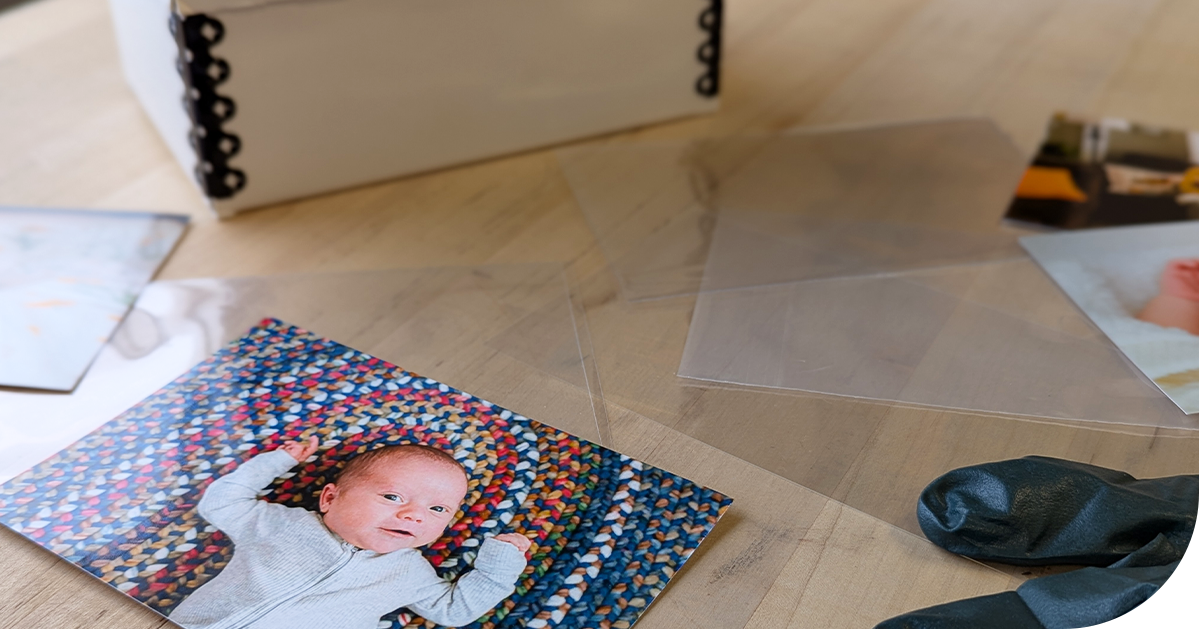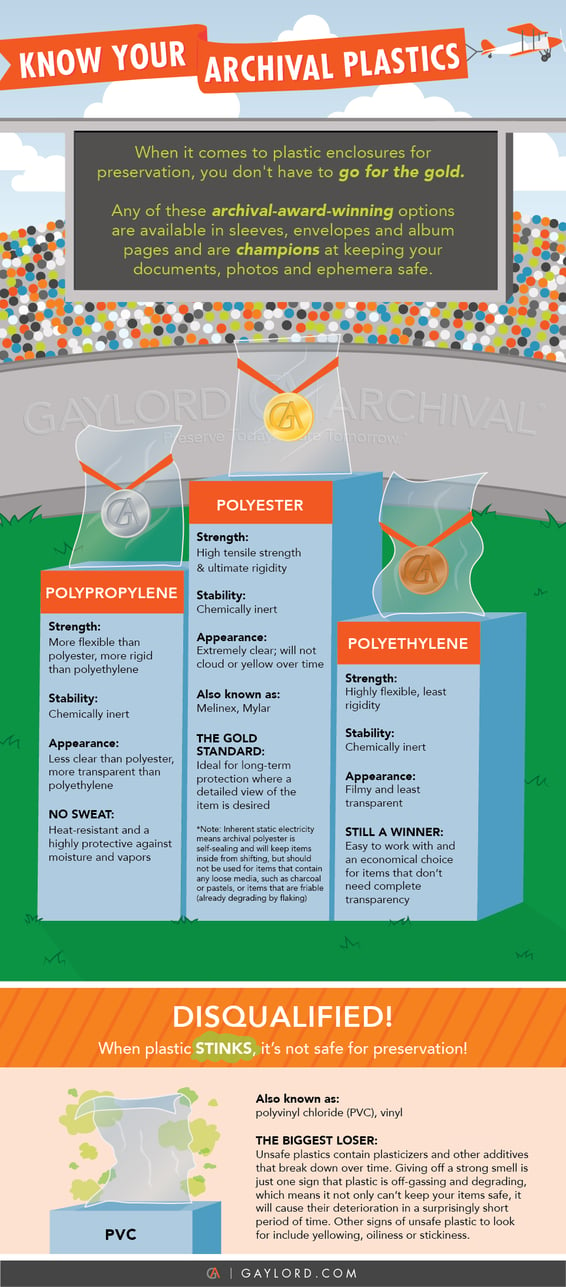When it comes to plastic, you have options.
There are three archival-quality plastics that you want to be on the lookout for when purchasing an enclosure or sleeve for your photographs and documents.
Terminology
The term "acid-free" isn't used concerning plastics. You want to keep an eye out for plastics described as "inert" or "stable"—these are the types of plastics that can be used in preservation.
What is a "mil"?
A mil is one-thousandth of an inch and refers to the thickness of the plastic. For example, something that is 4 mil is .004" thick.
What mil should I use?
The higher the mil, the stronger the plastic. Documents or photographs that require more support because they are oversized and/or fragile should be stored in higher mil plastic.
Which plastic is best for my needs?
Archival Polyester (PET) [$$$]
- Known by brand names Melinex® and Mylar®
- Chemically inert
- High tensile strength
- Chemical and dimensional stability
- Extremely clear
- Will not yellow or become cloudy
- Inherent static electricity helps keep items from shifting inside enclosures
- Should not be used with charcoal, pastels or other loose media
Polypropylene [$$]
- Chemically inert
- Heat-resistant
- Protection against moisture and vapors
- Slightly less clear than archival polyester, but clearer and more rigid than polyethylene
Polyethylene [$]
- Chemically inert
- Highly flexible
- Filmy appearance
- Most economical choice
Say NO to PVC!
Polyvinyl chloride (aka PVC and vinyl) is a thermoplastic widely used to make everything from plumbing pipes to children's toys. It has also been used to make photo storage pages. To make PVC more flexible, plasticizers have been added to the compound that should be considered dangerous and damaging to archival materials. These plasticizers will not only release chemical gases into the air but will cause the breakdown of the material over a surprisingly short time. Photo pages will seem "oily" to the touch and will begin to soften and yellow. To protect your photos from damage, say no to PVC and look for polypropylene pages instead.














